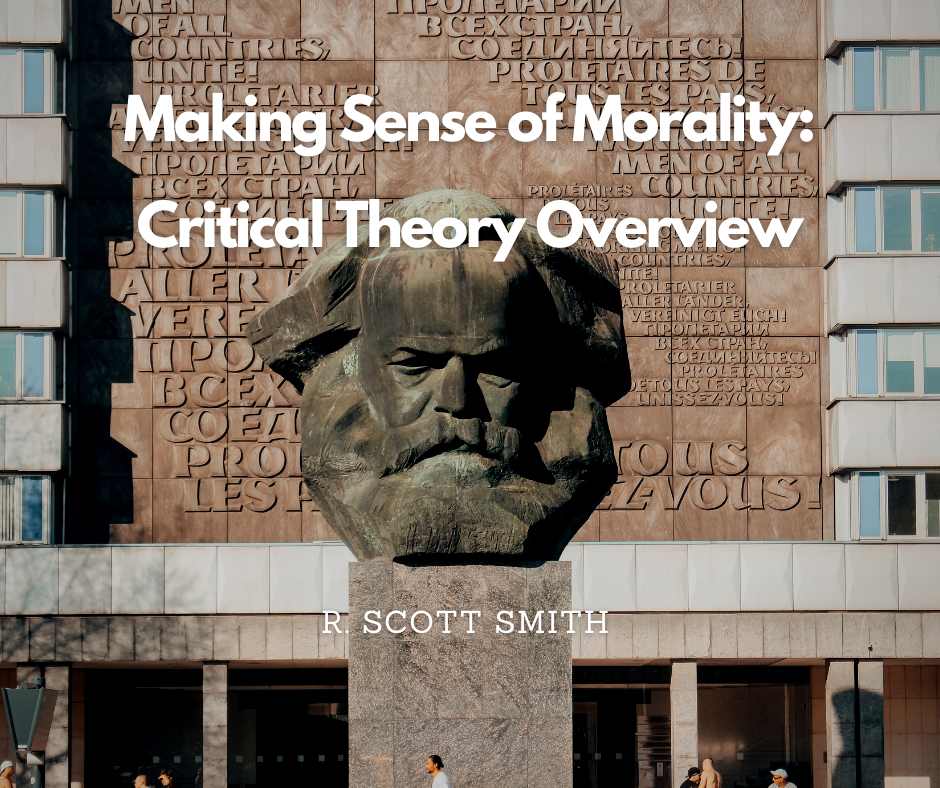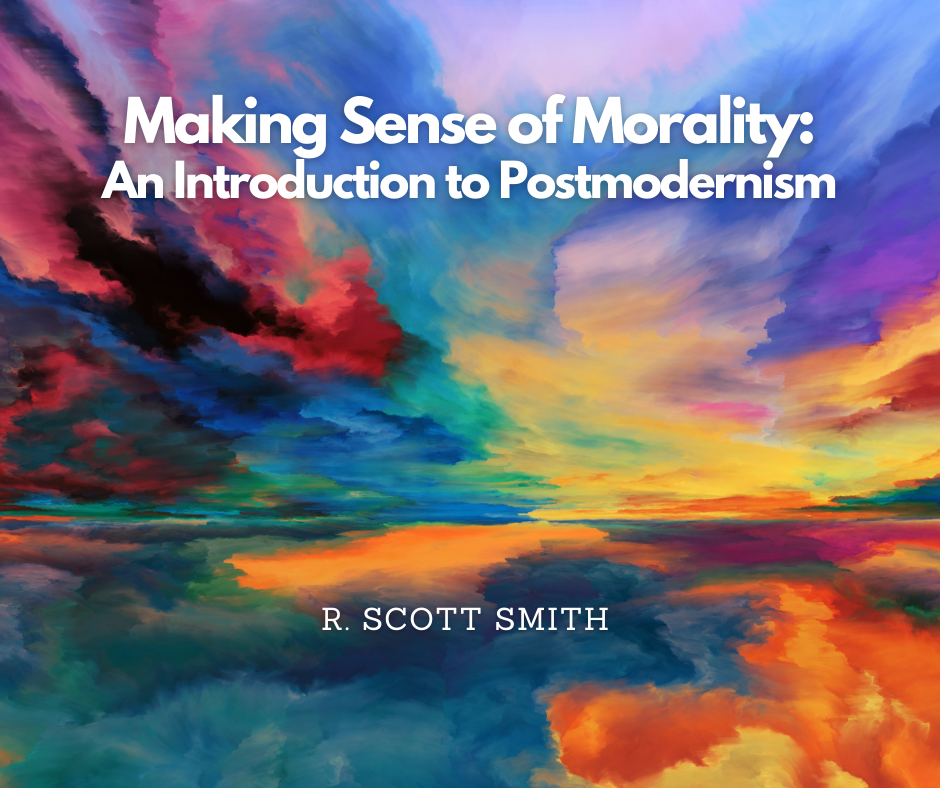Making Sense of Morality: Critical Theory Overview
/Editor’s note: R. Scott Smith has graciously allowed us to republish his series, “Making Sense of Morality.” You can find the original post here.
Introduction
Naturalistic ethics remains a dominant moral approach in the west. But there are at least two other contemporary kinds of ethics. They are critical theory and its particular versions, as well as postmodernism. I will start with critical theory (CT), with a focus today on social justice.
Overview of Critical Theory
Social justice has a long and venerable history, including efforts such as abolishing British and American slavery; caring for the vulnerable, such as the poor, widows, orphans, and minorities; and caring for the sick, such as through building hospitals. Today, however, there seems to be a “new kind” of social justice that focuses on issues such as (1) economic justice through the redistribution of resources; (2) freedom from discrimination due to one’s gender identity, and to be given positive rights on that basis; (3) environmental justice; and (4) racism and reparations.
Often, these contemporary efforts seem to be grounded in CT, which has a deep influence in the humanities, whether at secular or religious institutions. CT has spawned a number of specific studies, such as critical race, ethnic, legal, gender and queer, and cultural studies. It is having much influence in part because proponents are identifying some real injustices which should be addressed, such as racism, sexism, slavery, economic oppression, mistreatment of women, etc.
Based on several key philosophical positions, and Marxist-inspired thought, CT began in the “Frankfurt school.” That school included several key thinkers, such as Max Horkheimer (d. 1973), Theodor Adorno (d. 1969), and Herbert Marcuse (d. 1979). CT also was influenced by Antonio Gramsci (d. 1937), and all four were influenced significantly by Karl Marx (d. 1883).
Three Key Positions
Some of the reasons for the influence of CT is that it taps into accepted views we have seen. First, it accepts materialism: reality is made of matter, without any essences. Second, everything is particular (nominalism). Third, in terms of knowledge, it accepts historicism.
Historicism is like the view we saw in Kant, that we cannot know reality as it is in itself (i.e., directly). CT rejects knowledge of universal truths for all people at all times and places, for that would require a universal standpoint. Instead, historicists believe all knowledge is situated: it is socially-based and embedded in a given historical location and time. Our situatedness shapes how we interpret reality, and, like a set of lenses, we always experience and interpret reality through that interpretive framework. Yet, we cannot take off our glasses and get a direct, uninterpreted gaze into reality itself. Everything is our interpretation, drawn from our particular historical location.
Nietzsche (d. 1900) helped give rise to historicism, too. As a naturalist, he denied any essences. Also, due to nominalism, there are no literal identities between any two things; we construct things by taking them to be identical. Unlike Kant, there are no truths of reason (a priori). Indeed, things like the will are just words, the way we happen to talk. Even that we are the subjects of our thoughts is just an interpretation according to our grammatical formulae. Our teaching how to use words deceives us to think such things are real. Indeed, claims to know what is real just reflect our will to power, when actually all knowledge is perspectival.
Ethics
Now, CT posits that there are two groups, the oppressors and the oppressed. A critical theory seeks to liberate people from domination and oppression and increase freedom in all their forms. Ethically, our fundamental duty is to liberate the oppressed. That is done by leveling power and redistributing resources (i.e., material solutions, since matter is what is real). This means an equality of outcomes, not opportunity.
Moreover, traditional western societies’ institutions oppress and alienate people from their true selves by disrespect, disapproval, and social inequalities. Instead, people are to be free to live as they want (e.g., define their own sexuality). For secular critical theorists, this liberation is accomplished in part by the state’s coercive power.
For Further Reading
Max Horkheimer, Critical Theory
Friedrich Nietzsche, “Life, Knowledge, and Self-Consciousness,” and “Prejudices of Philosophers,” in Nineteenth-Century Philosophy, ed. Patrick Gardiner
Roger Scruton, Fools, Frauds and Firebrands: Thinkers of the New Left
R. Scott Smith is a Christian philosopher and apologist, with special interests in ethics, knowledge, and seeing the body of Christ live in the fullness of the Spirit and truth.





















